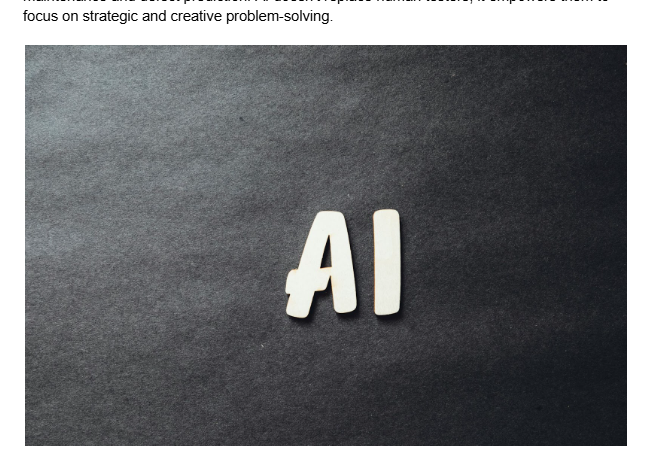
We present you with the Ultimate guide with the most “uncomfortable/challenging” 10 job interview questions and answers, along with advice on how to respond to them in your next job interview. Some questions may be not legal in some countries but are common in others.
- What is your greatest professional achievement?
This question gives the interviewer an idea of your capabilities and what you consider important in your career. It is an opportunity for you to highlight an achievement that demonstrates your skills, dedication, and impact in your previous roles.
What to do?
Choose an achievement that is relevant to the position you are applying for.
Briefly describe the context and the challenges you faced.
Highlight your role in the achievement and the specific results you achieved.
What NOT to do?
Don't choose an achievement that is not related to the job or the skills required for the position.
Avoid being vague; provide concrete details and measurable results.
Don't underestimate your contribution, but also don't exaggerate your role.
Possible Answer to "What is your greatest professional achievement?":
"My greatest professional achievement was during my time at ABC Technologies, where I led the development of a new project management software. We faced several challenges, including tight deadlines and the integration of multiple complex functions. My contribution was vital in the design of the software and in coordinating the team to meet the deadlines. The project was completed successfully and under budget, resulting in a 20% increase in project management efficiency for our clients. This accomplishment was recognized with an innovation award at the company and reaffirmed my passion for efficient project management and teamwork."
- What can you bring to the company?
This is a question that allows the interviewer to assess how your skills, experiences, and personal qualities can be valuable to the company. Here, you are expected to demonstrate a clear understanding of what the company needs and how you can contribute to these goals.
What to do?
Highlight specific skills or experiences that align with the job requirements and the company's goals.
Mention concrete examples of how your contributions have benefited previous employers.
Emphasize unique qualities that set you apart from other candidates.
What NOT to do?
Avoid generic responses that could apply to any candidate.
Do not speak in vague terms; be specific about how you can contribute.
Avoid exaggerating your skills or promising more than you can deliver.
Possible Answer to What can you bring to the company?
"I can bring to the company a combination of experience in digital marketing and advanced analytical skills. In my previous role, I developed and implemented strategies that increased the online presence of the company by 25%. Additionally, I am proactive in learning and adapting to new technologies and trends, which I believe is crucial to keeping the company at the forefront in a competitive market. I also stand out for my ability to work effectively in a team and for my solution-oriented approach, qualities I consider fundamental to positively contribute to the work environment and the goals of the company."
- What do you consider your weaknesses or flaws?
This job interview question focuses on your areas for improvement or aspects you consider as weaknesses. The intention is to evaluate your self-assessment ability, honesty, and particularly, how you address and work on your weak points.
What to do?
Mention weaknesses that are not crucial for the role and that you're actively working to improve.
Be honest. Avoid mentioning flaws that may be a red flag for the position.
Talk about the strategies you're using to overcome these weaknesses.
What NOT to do?
Don't say "I don't have weaknesses" or avoid answering the question; this can be perceived as lack of self-awareness or sincerity.
Avoid cliches like "I'm too perfectionist", unless you can give a unique and honest twist to your answer.
Do not mention weaknesses that may question your ability to perform effectively in the position.
Possible Answer to "What do you consider your weaknesses or flaws?":
"One of my weaknesses has been time management. At times, I've found myself overwhelmed by wanting to do too much simultaneously. However, I've been working on this by using project management tools and prioritization techniques, which have significantly improved my efficiency. In addition, sometimes I can be critical of my work, leading me to spend more time than necessary on details. I've learned to balance my perfectionist approach with the need to meet deadlines, ensuring I'm efficient without compromising work quality."
- What is your work style?
Work style refers to how an individual approaches and carries out their work tasks. This question seeks to understand how you operate in a professional environment, how you manage your time, and how you relate with your colleagues. It's important to be honest and provide an answer that reflects your true work style. You can mention if you are more autonomous or if you prefer working as a team, if you like planning meticulously or if you are more flexible in your approach, among other aspects. Highlighting how your work style aligns with the needs of the position can be beneficial.
What to do?
Describe how you approach tasks and time management.
Mention how you interact with co-workers and handle teamwork.
Talk about how you face challenges and solve problems.
What NOT to do?
Do not describe a work style that is completely opposite to the company culture.
Avoid answers that suggest a lack of organization.
Do not ignore important aspects such as communication or adaptability.
Possible Answer to What is your work style?
"My work style is very organized and goal-oriented. I like to set clear goals and realistic deadlines for my projects. I prefer a collaborative approach and often seek feedback from my colleagues to improve and optimize processes. I'm also adaptable and can manage multiple tasks effectively, which I believe is essential in a dynamic work environment."
- How do you adapt to changes in the work environment?
The ability to adapt to changes in the work environment is essential in an evolving business landscape. When facing this question in an interview, the interviewer is trying to assess your flexibility and resilience in changing situations. It's important to highlight your ability to adjust and thrive in new scenarios. You can mention past examples where you have faced changes in your work and how you approached them positively, how you stayed informed about new trends or technologies relevant to your field, and how you seek opportunities to learn and grow in your role.
What should you do?
Provide specific examples of how you have handled changes in the past.
Show a positive attitude towards change and a willingness to learn from new situations.
Explain your methods for maintaining productivity and focus during periods of change.
What should you NOT do?
Do not give the impression that you resist change or struggle to adapt.
Avoid examples where change overwhelmed or paralyzed you.
Do not ignore the importance of being flexible and open to new ideas.
Possible Response to How do you adapt to changes in the work environment?
"I adapt well to changes in the work environment. For example, when my previous company implemented a new project management tool, I took the initiative to quickly learn it and help train my colleagues. I see changes as opportunities to grow and learn. I maintain calm in face of uncertainty and focus on adapting my work strategies to maintain efficiency and quality in my work."
- How do you stay motivated and productive when working remotely?
This question probes into your ability to maintain motivation and productivity when working remotely. You can mention strategies such as establishing a routine, creating a dedicated workspace, setting daily goals, and maintaining effective communication with your team through digital tools. It is also important to mention your self-discipline and time management skills. Avoid responses that suggest a lack of motivation or problems working remotely, as this could raise doubts about your adaptability. Instead, focus on how you maximize your efficiency in a remote environment.
What to do?
Highlight your self-management and discipline skills.
Mention tools or strategies you use to maintain productivity.
What NOT to do?
Avoid vague responses or lack of a clear strategy for remote work.
Do not mention distractions or difficulties without explaining how you overcome them.
Possible Answer to "How do you stay motivated and productive when working remotely?"
"When I work remotely, I focus on establishing a solid routine and an organized workspace. I use time management tools and make sure to take regular breaks to keep focus. I also stay in constant contact with my team through effective communication to ensure we're all on the same page."
- Tell me about a challenge or conflict you have faced at work, and how you dealt with it:
Employers ask this question to evaluate your ability to handle conflicts and challenges in the workplace. They want to know how you approach difficult situations and contribute to the effective resolution of problems. When answering this question, you should highlight your communication skills, conflict resolution abilities, and teamwork.
What to do?
Identify the root of the conflict specifically.
Encourage open and effective communication between the parties involved.
Propose concrete and logical solutions.
What NOT to do?
Ignore the conflict or downplay its importance.
Blame others without solid evidence.
Possible answer to "Tell me about a challenge or conflict you have faced at work, and how you dealt with it":
"In my previous job, there was a conflict between two teams due to lack of communication. I identified the root of the problem, organized a meeting to encourage dialogue, and proposed a more effective communication plan. In the end, we managed to overcome the conflict and improve collaboration between the teams. This experience highlighted my ability to address challenges and seek constructive solutions at work."
- Tell me about a time you made a mistake:
Employers ask this question to assess your ability to recognize and learn from your mistakes. They are looking for candidates who are honest, accountable, and willing to improve. When answering this question, you should demonstrate that you can handle difficult situations maturely and have the ability to self-correct.
What to do?
Acknowledge the mistake honestly and directly.
Take responsibility for the mistake.
Take concrete steps to correct it and learn from the experience.
What NOT to do?
Hide the mistake or minimize its importance.
Blame others.
Possible answer to "Tell me about a time you made a mistake":
"In my previous job, I made a mistake in an important report. When I realized it, I immediately communicated it to my supervisor, took responsibility, and worked extra hours to correct it. This experience taught me the importance of attention to detail and effective communication, as well as the need to learn from mistakes to grow professionally."
- How do you handle pressure or stressful situations?
Employers ask this question to understand how you face stressful situations at work. They want to know your strategies for maintaining calm and productivity under pressure. When answering, you should highlight your stress management skills, such as prioritizing, maintaining focus, and seeking effective solutions.
What to do
Take breaks to breathe and stay calm in times of pressure.
Prioritize tasks and set realistic deadlines to manage stress.
Seek additional support or resources when necessary.
What NOT to do
Let stress overwhelm you or negatively affect your performance.
Postpone important tasks due to stress.
Possible answer to "How do you handle pressure or stressful situations?"
"When I face stressful situations at work, I first take a moment to breathe deeply and stay calm. I avoid responding when I am angry. Then, I prioritize tasks, set realistic deadlines, and seek support if necessary. Also, I have learned to maintain a positive mentality and see challenges as opportunities to grow and improve my stress management skills."
- How did you handle a situation and relationship where you had to work with someone difficult?
This question evaluates the candidate's ability to manage conflicts and difficult work relationships. The interviewer seeks to understand how the candidate approached an interpersonal challenge in the past.
What to do?
Describe the situation concisely, including details about who the difficult person was and the context.
Highlight how you approached the situation in a positive and constructive way.
Emphasize the resolution of the conflict and how you managed to work effectively with that difficult person.
Show how your actions led to positive results or improvements in the relationship.
What NOT to do?
Avoid blaming the other person or criticizing them negatively.
Don't minimize the conflict or the difficulty of the situation.
Don't omit important details about how you handled the situation.
Possible answer to "How did you handle a situation and relationship where you had to work with someone difficult?" :
"At my previous job, I had to collaborate on a project with a colleague who had opposing views and a very different work approach than mine. This generated tensions and difficulties in our working relationship. To address this situation, I decided to schedule a private meeting with my colleague to discuss our differences and find common ground. During the meeting, I listened to their concerns and shared mine respectfully. Together, we identified areas of compromise and set clear expectations on how we would work together more effectively. This open communication and willingness to resolve our differences led to a more harmonious collaboration and a successful project. I learned the importance of addressing conflicts proactively and maintaining open communication to maintain strong work relationships."



